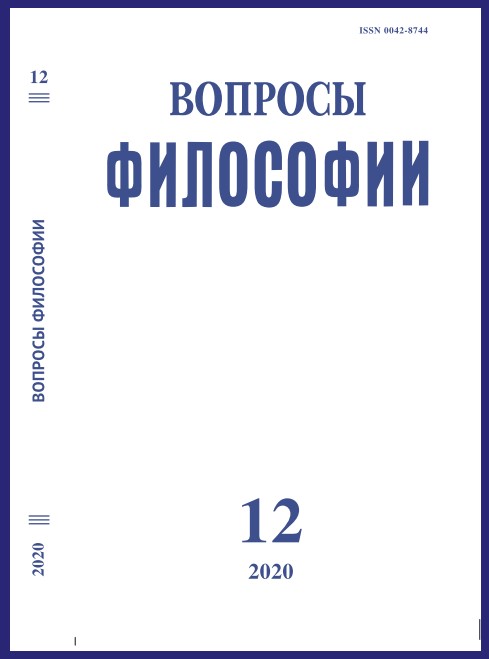The Posthuman Turn to the Post(non)human
DOI:
https://doi.org/10.21146/0042-8744-2020-12-57-67Keywords:
posthumanism, postmodern, postdualism, postanthropocentrism, the Anthropocene, the crisis of humanism, nonhuman, post(non)human.Abstract
The article shows the retrospective of such modern philosophical movement as posthumanism, one of the basic ideas of which is the “posthuman”. The posthuman in posthumanism is understood not as a being who has overcome his biology (as in transhumanism), but as a point of assembly of mythical, chimerical, technological, social, biological; as a further deconstruction of humanistic “vitruvian man”. This aspect reveals the exceptional features of the new anthropology of posthumanism, which makes it possible to show the difference between transhumanism and posthumanism. The evolution of humanism, through anti-humanism and transhumanism (which is understood as “hyperhumanism”) leads to posthumanism. Its main features, according to R. Braidotti and Fr. Ferrando, are post-anthropocentrism, post-dualism and post-humanism. The article analyses each of these concepts, which allows us to delve deeper into the contexts of contemporary philosophical anthropology. The analysis of the posthuman turn towards non-human agents and, as a consequence, the general trend of tendency of contemporary philosophy to the de-anthropologization is being carried out. The genealogy of this phenomenon includes fatigue from the hierarchy of humanism ideals, which, as M. Foucault showed back in the middle of the twentieth century, were conditioned by historical prerequisites of cultural development. Inheriting ideas of postmodern philosophy, gender theory, post-colonial studies, animal studies, unable studies, actor-network theory, and even quantum physics, posthumanism opens up a space for being in terms of subjectivity for all others previously oppressed in the era of humanism (animals, women, and all those whom Aristotle, as opposed to bios, referred to zoe). To illustrate this thesis, the article introduces a new term “post(non)human”, which reveals the concept of posthumanist discourse. The use of this term allows us to express more comprehensively the results and consequences of the posthumanist turn in the philosophical anthropology of the twenty-first century.

